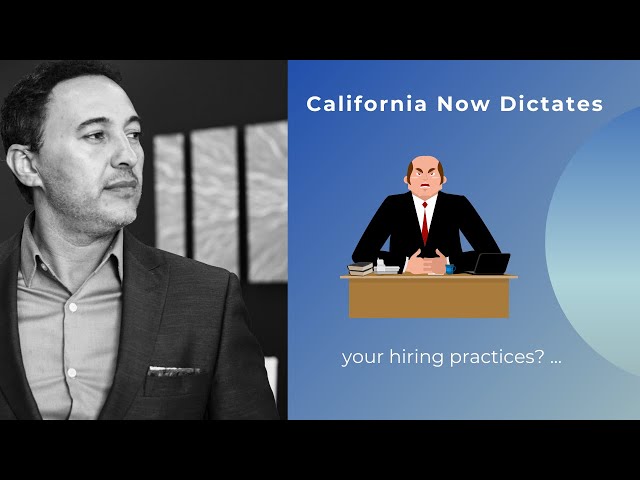
Posted on December 23rd, 2021
Below is a full transcript of this video.
What’s up fellow entrepreneurs. It’s John Fagerholm again and today I want to talk about ban the box again. Oh yes. It’s back in play, but first I’m an attorney, but I’m not your attorney. So please seek out competent legal advice for your specific legal matters.
On October 20th, the California department of fair employment and housing DFEH announced plans to utilize technology, to conduct mass searches of online job advertisements, to identify violations of California’s ban the box statute.
The DFEH contends that the technology helps them discover job advertisements that contain blanket statements indicating that an employer will not consider applicants with a criminal history. For instance, players are prohibited from using language such as clean records only, or no felons in their job listings.
This announcement was made after the DFEH claims that they found more than 500 job advertisements in violation of a law in just a one day review.
I don’t believe that, but that’s just my opinion. Beyond the use of technology. The DFEH is also asking applicants to report any job postings with criminal, or I’m sorry, with discriminating language, they are currently sending notices to offending employers to remove unlawful advertisements.
So the potential consequences for violating the law include actual damages for injuries or losses, compensatory damages for pain, suffering, humiliation, and emotional distress, punitive damages and attorney’s fees and court costs.
As I previously reported back in early 2018 on January 1st, 2018, California enacted the fair chance act otherwise known as the ban, the box law, which prohibits private and public employers with five or more employees from asking about an applicant’s criminal conviction history before making a job offer the law prohibits employers from including any questions regarding an applicant’s criminal history on a job application.
After the job offer is made, however, an applicant’s employment can be contingent on their criminal history.
If a job offer is made and an employer then intends to deny employment based upon an applicant’s criminal background, the employer must follow a multi-step protocol.
This is a challenging process, which includes drafting a written assessment that links the applicants, criminal history to the duties of the position and providing a copy of the assessment to the applicant.
After the assessment, the employer must notify the employee in writing of the preliminary decision to disqualify the applicant based on his or her criminal history.
The applicant then has the legal right to respond to the notice within five days, if the applicant timely, furnishes the employer with a challenge, notice the employer must reconsider the application in light of the information provided.
So the employer must notify the applicant in writing of any final disqualification based on the applicant’s criminal history.
In other words, the employer must do additional work, not related to their business, wait an additional two weeks to hire another qualified person of their choice and possibly be required to justify their decision at their own time and expense.
When I made a video about ban the box back in 2018, I thought then that this new law would create a slew of civil litigation as ex-convicts could potentially Sue anytime they were not hired.
I was wrong then, but now I am concerned that instead of felons, there’ll be California attempting to profit from business owners who either do not know about this law, or frankly would just prefer not to hire a felon.
Freedom is gone in California.
Until next time. Be productive.


